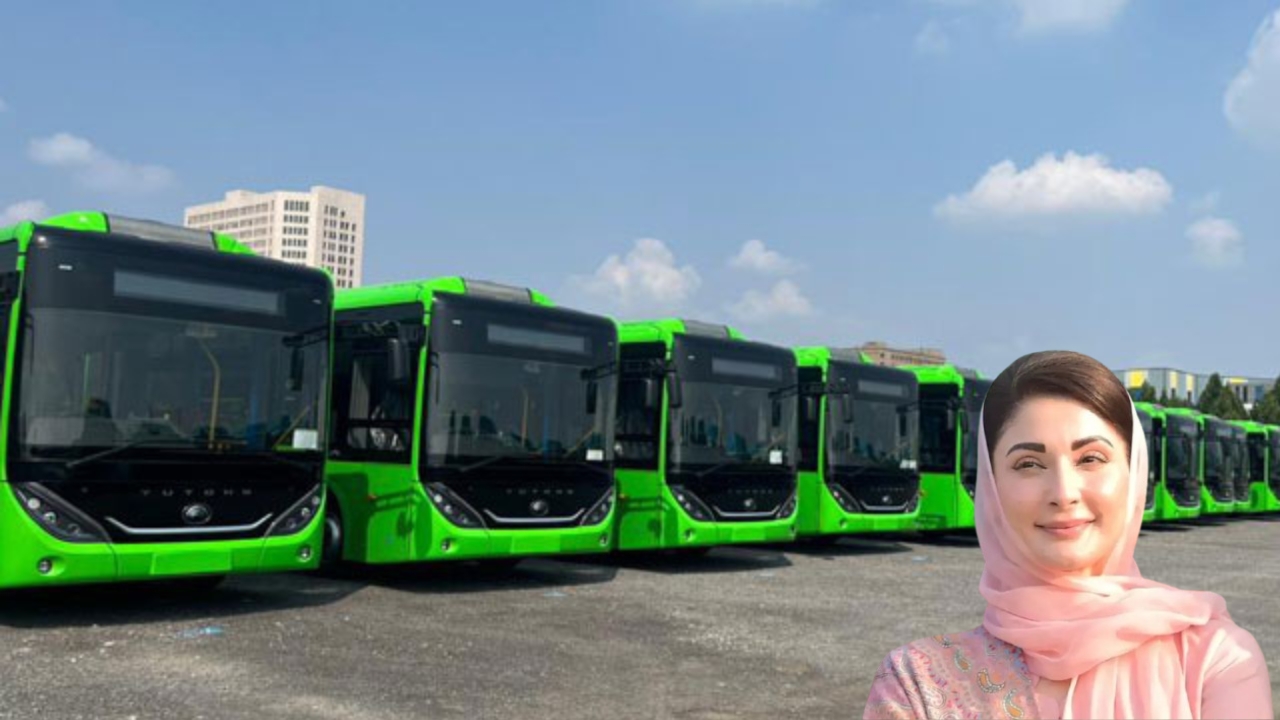Punjab Announces 80 Electric Buses for Rawalpindi with New Routes
The Punjab government has announced that 80 new electric buses will start running in Rawalpindi by the middle of October. This move is part of a larger effort to improve public transport, reduce air pollution, and make travel easier for the people of Rawalpindi and Islamabad. Check Punjab Electric Buses announcement for Chakwal and Talagang with Routes.
Purpose of the Electric Bus Project
The city of Rawalpindi has long faced problems of heavy traffic, long waiting times, and rising pollution. Private cars, motorcycles, and rickshaws fill the roads every day, creating both congestion and smoke. The Metro Bus service has helped some people, but many areas of the city remain without modern transport options.
The new electric bus project aims to fix these gaps. The government wants to provide affordable, clean, and reliable transport to more parts of the city. It will not only help people save money and time but also improve the air quality and reduce fuel consumption.
Routes for the New Buses
The buses will run on 10 newly planned routes, covering a total of 86 kilometers. These routes connect major areas of Rawalpindi and also link with Islamabad’s transport network. This means that people living in Rawalpindi will find it easier to travel to the capital city without needing private vehicles.
Here are the 10 announced routes:
- Railway Station to Lahore High Court Rawalpindi Bench
- Koral Chowk to Fawara Chowk
- Umar Baig Chowk to Mandi Mor
- Munawar Colony to Saddar
- Marrir Chowk to Motorway Mor
- Faizabad to Tramri Chowk
- IJP Metro Station to Kuri Road
- Saddar to Lalarukh Colony
- Umair Baig Road to Qadeemi Imambargah Mohallah
- Saddar to Saddar (loop service)
These routes cover busy markets, residential areas, government offices, and connection points with Islamabad. For the first time, some neighborhoods not linked by the Metro Bus will get a modern public transport service.
Bus Depot and Infrastructure
To manage the new buses, a large depot is being built on Peshawar Road. The depot covers 28 kanals of land and has the capacity to hold up to 100 buses. This depot will act as the main center for charging, parking, and maintenance of the electric buses.
The depot is not just a parking space but also part of the city’s new urban transport infrastructure. It will make sure that the buses stay in good condition and that service is not interrupted. This step shows that the government is planning not just for today but for the future growth of the city’s transport system.
Benefits for the Public
The electric bus project brings many benefits for the people of Rawalpindi and nearby areas.
- Cleaner Environment: Since the buses run on electricity, they do not produce smoke like petrol and diesel vehicles. This will help improve air quality in the city.
- Lower Costs: Public buses are cheaper than using private cars or paying for daily rickshaw rides. Families can save money on travel.
- Less Traffic Congestion: More people using buses means fewer cars and motorcycles on the roads. This will help reduce traffic jams.
- Better Connectivity: The routes cover places not connected by the Metro Bus. This gives people in underserved areas access to reliable transport.
- Modern Facilities: The buses are designed to be modern, safe, and comfortable. This will encourage more people to use public transport instead of private vehicles.
A Step Toward Modern Transport
Rawalpindi has grown quickly in recent years, but its transport system has not kept up with the needs of the people. The Metro Bus was an important project, but it only covers limited areas. With the addition of electric buses, the city will have a second network that supports the Metro and reaches other parts of the city.
The project is also linked to Islamabad’s transport system. Since many people travel between the two cities every day for work, education, or business, this link will make their journey easier and faster.
Government Plans for the Future
This electric bus project is part of Punjab’s Annual Development Programme 2025–26. The program includes not only new buses but also the construction of bus depots and related infrastructure in different cities. The idea is to slowly build a modern, eco-friendly transport system across Punjab.
Officials say that this is just the beginning. If the project is successful in Rawalpindi, similar services may be expanded to other big cities of Punjab. Over time, the province could move toward a cleaner and more efficient public transport system.
Challenges Ahead
While the project looks promising, there are some challenges that will need attention. Charging stations for electric buses require a strong and stable power supply. Managing the buses, routes, and schedules will also require careful planning. Maintenance costs and technical training for staff are also important for long-term success.
However, officials believe these challenges can be managed with proper planning. The new depot and the government’s focus on infrastructure show that they are aware of these needs.
Conclusion
The launch of 80 electric buses in Rawalpindi is a major step toward modern and eco-friendly public transport. With 10 new routes, a new depot, and better connections to Islamabad, the buses will bring real benefits to the people. They will reduce traffic jams, lower pollution, and give more people access to reliable and affordable transport.
This project is not only about buses. It is about building a future where cities are cleaner, travel is easier, and public transport is trusted by the people. If it succeeds, it can become a model for other cities in Punjab and across Pakistan.








